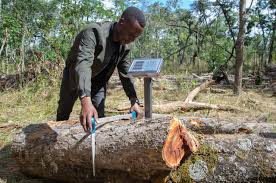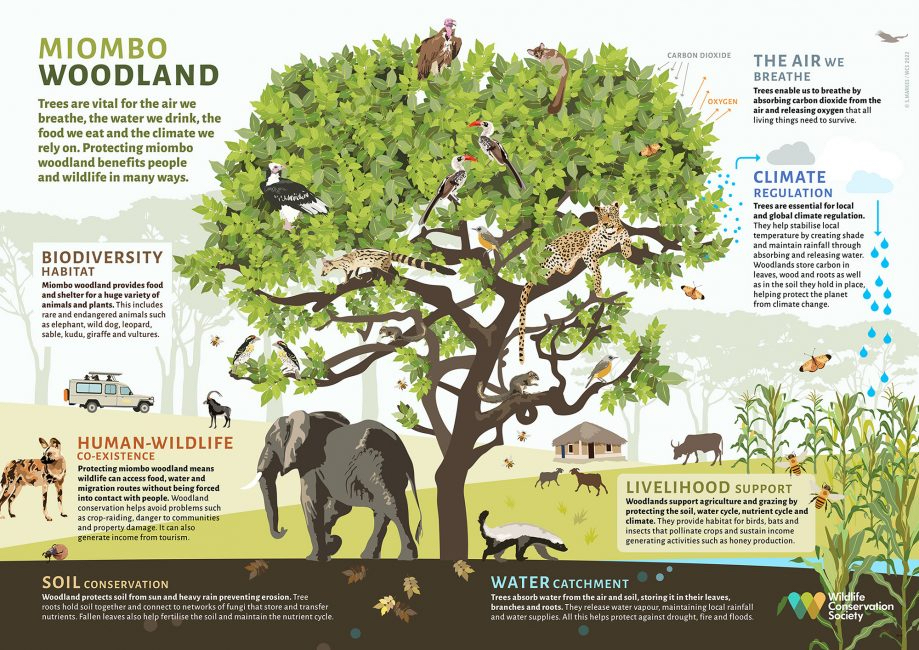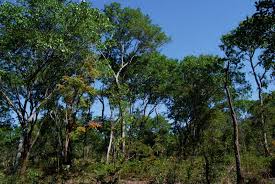John Cassim

The Food and Agriculture Organization (FAO) of the United Nations has launched a major new initiative to protect the Miombo woodlands in Zimbabwe, a crucial ecosystem that supports the livelihoods of millions of rural residents.
The $1.7 million project, funded by the Italian government, will be implemented in Zimbabwe and Mozambique. In Zimbabwe, FAO will work closely with the Forestry Commission and local communities in the Mudzi, Rushinga and Chipinge districts to address the growing threats facing the Miombo woodlands.
Meanwhile the Miombo forest spans across parts of Angola, Botswana, Burundi, the Democratic Republic of Congo, Malawi, Mozambique, Namibia, Tanzania, Zambia, and Zimbabwe, covering 1.9 million square kilometers.
The project commenced recently, focusing on engaging key stakeholders and laying the groundwork for effective implementation.
The Miombo is a biome encompassing tropical and subtropical grasslands, bushlands, and savannahs. It also includes four bio-regions and plays a crucial role in maintaining the Greater Zambezi, one of the most important transnational river basins.
Wildlife commonly found in the Miombo forests includes the sable antelope, Lichtenstein’s hartebeest, common duiker, African buffalo, greater kudu, African elephant, eland, Sharpe’s grysbok, black rhinoceros, and Burchell’s zebra.
Currently, FAO and the Forestry Commission in Zimbabwe are conducting stakeholder inception meetings for a new Miombo woodlands restoration project in Chipinge, Mudzi, and Rushinga.
Comprehensive on-site assessments and stakeholder engagements with district-level officials, community leaders, environmental organizations, and industry representatives are underway. These activities involve evaluating the current state of forest resources and identifying local challenges and opportunities.
“These inception meetings mark the beginning of full implementation,” stated Banarbas Mawire, FAO Natural Resources Management Coordinator. “Once finalised, the project will begin in earnest. This participatory approach ensures that our implementation strategies are tailored to the unique needs of each district.”
“By collaborating closely with local stakeholders, we can promote long-term sustainability and community ownership of the project,” he added.

A crucial next step highlighted across all three inception meetings is the upcoming baseline survey or study. Joyce Gombe, acting Director General of the Forestry Commission, explained that this survey will refine the project’s work plan and activities. The survey, expected to be completed by the end of March, will scope issues such as the 5000 targeted beneficiary households.
“The baseline will provide a clear picture of the existing conditions and the key players we need to engage,” explained the acting Director General. “This will be an ongoing process, as we maintain continuous engagement with local structures to avoid any misunderstandings,” said Joyce Gombe.
Collaboration emerged as a central theme. Jairos Masiye, Chief Executive Officer (CEO) for Rushinga District, expressed gratitude to the project’s “partners” and emphasized the “energy and support” from FAO and the Forestry Commission. The importance of continued stakeholder engagement was further stressed by Victor Nyamutswa, CEO for Mudzi district, who stated, “We expect to continue engaging each stakeholder in the future for the success of this project.”
Peter Kaitano, Rushinga Ward 1 Councilor, a local community leader, emphasized the importance of private sector involvement, stating, “This should not only involve the government, but should also involve the private sector. The private sector needs to be on board, please.”
“By working together, we can ensure the Miombo woodlands continue to thrive and support the livelihoods of our communities for years to come,” added Chief Nyakusengwa, from Ward 1 Rushinga.

Livelihoods, Employment Creation, and Addressing Cross-Border Issues
It has been noted that the transboundary nature of the forests has led to challenges such as charcoal production, illegal timber harvesting, and other criminal activities.
“Addressing these cross-border issues should also be a key focus of the project,” explained William Mashava, Chipinge District Development Coordinator. “We hope that the project includes plans to develop joint management strategies and strengthen law enforcement along the border areas, considering that we share not only a border with Mozambique but also families, languages, and culture,” asserted William Mashava.
Cyrian Shamu, a representative from the Ministry of Environment, Climate and Wildlife, said, “Our goal is to demonstrate that protecting the environment can also improve people’s lives. By empowering local communities and providing them with alternative livelihood options, we can reduce pressure on the forests and ensure a brighter future for generations to come.”
With the groundwork laid, attendees expressed optimism about the project’s potential impact. As Joyce Gombe concluded, “It was informative and productive, and we expect to continue engaging each stakeholder in the future for the success of this project.”
Technical Support and Expanded Initiatives
FAO and the Italian Agency for Development Cooperation (AICS) signed two agreements on July 31, 2024, in Maputo, to protect the Miombo forest and facilitate trade in the border region between Mozambique and Zimbabwe.
These projects, are valued at over US$8 million and are funded by the Italian based Mattei Plan for Africa with the aim to promote sustainable development and cooperation between the two nations.
The first project, “Integrated Transboundary Sustainable Management of Miombo Forests,” will focus on protecting, restoring, and promoting the sustainable use of the shared Miombo forest. This forest is vital for millions of rural inhabitants, providing essential resources like firewood, food, and water.
This initiative will emphasise sustainable livelihoods, biodiversity conservation, and enhancing community-based management practices, directly benefiting 5,000 families in selected areas while promoting gender equality and youth participation. This project aligns with the Protocol and the Maputo Declaration (2022) on sustainable and integrated management of Miombo woodlands, adopted in August 2022.
The second project, the “Zim-Moza Agriculture Value Chain & Trade Development Project” (Zim-Moza ATDP), focuses on developing the agricultural value chain and trade between Mozambique and Zimbabwe
